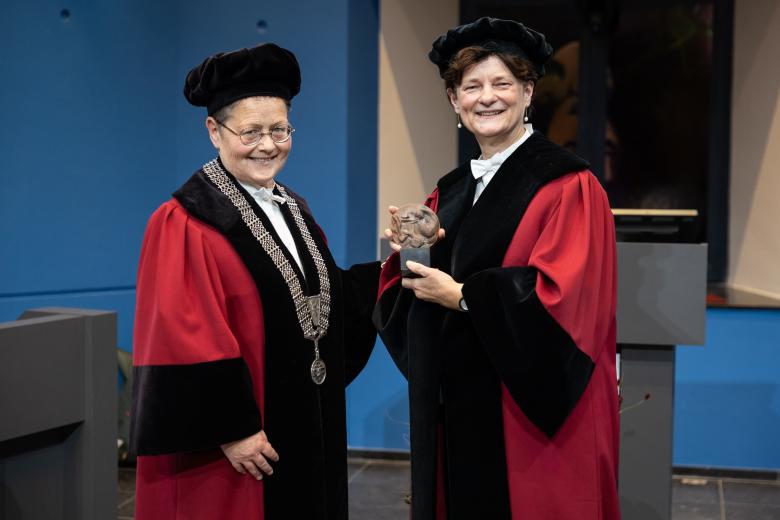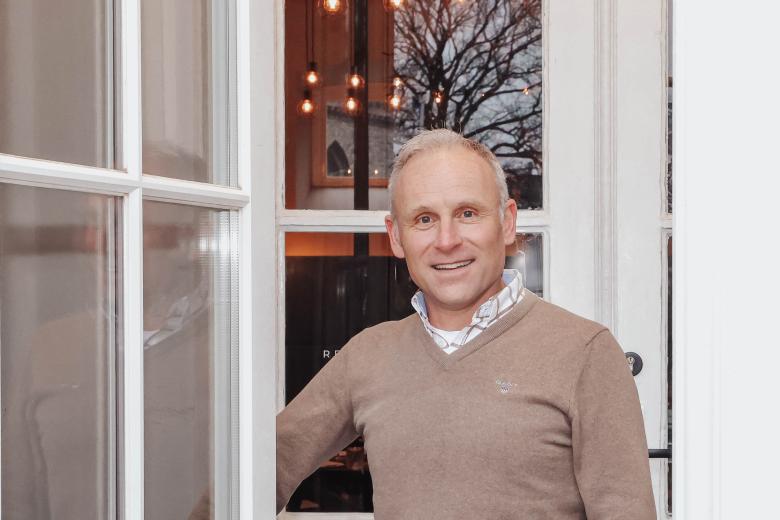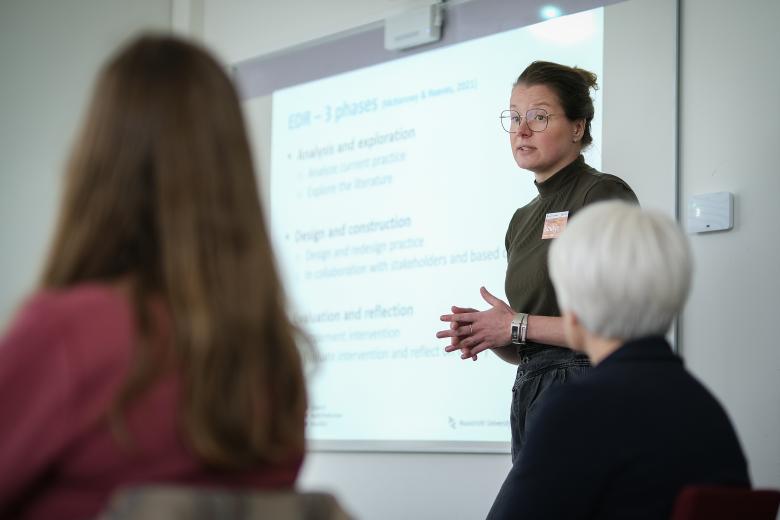Macrophages as key to treating liver fibrosis
At the Faculty of Health, Medicine and Life Sciences, researchers are committed to making an impact every day. Sabine, for example, focuses on the role of immune cells in liver diseases. In Nice to meet you, she talks about her background and her work at FHML.
Dr Sabine Daemen was born and raised in the Maastricht region. After completing her bachelor's and master's degrees in Biomedical Sciences at Maastricht University, she stayed in the area in the best possible way. She obtained her PhD at the Department of Nutrition & Human Movement Sciences (NUTRIM), then left for three years to do a postdoc in the United States, returning to Maastricht in 2022. She now works at the Cardiovascular Research Institute Maastricht (CARIM), where she conducts research into liver diseases.
''After completing my PhD, I wanted to remain in the field of metabolism, but also learn something new. In the United States, I began to study fatty liver disease and immune cells. It was a gradual process: as we obtained more results, the idea grew that certain macrophages might have a protective function, rather than just causing damage.''
From America to Maastricht
During her postdoc, Sabine worked on research that would later form the basis for her Veni grant application. Together with her husband, who works in the cardiovascular field, she spent three intensive years in St. Louis, Missouri. “After three years, we wanted to return. My husband started working in the business world, and I was able to start working at CARIM with Kristiaan Wouters thanks to a grant application. It immediately felt like coming home.”
Research fatty liver disease
At CARIM, Sabine focuses on fatty liver disease, a rapidly growing problem caused by overweight and obesity. It can lead to inflammation and ultimately liver fibrosis: the formation of scar tissue in the liver. "We are specifically looking at macrophages, a subset of immune cells. What do they do during the disease process? What role do they play in inflammation? But above all: can they also have an inhibitory or restorative function?"
The possibility that these cells contribute not only to damage but also to repair, is a new twist in the field of research.
Thanks to the Veni grant, I will be able to really shape my own line of research over the next three years.
Veni grant: space to build
In 2025, Sabine received the prestigious Veni grant from NWO. This personal grant is intended for promising, newly graduated researchers and enables them to develop their own innovative research ideas for three years. With a maximum funding of €320,000, the Veni grant offers young scientists the opportunity to further develop their research. "It's a very intense process. It starts with a CV selection, then the application, and only then are you allowed to proceed to the interview. If you win... well, that's very special. For me personally, a lot depended on it. Because of the Veni, I can really shape my own line of research over the next three years."
With the grant, she wants to investigate whether it is possible to stimulate the 'good' subtype of macrophages so that these cells can actively contribute to inhibiting liver fibrosis. "The original idea was that macrophages contributes to inflammation and fibrosis. But maybe some do exactly the opposite. That’s what I want to find out."
During the CARIM symposium on 26 November, Sabine will present her Veni project and explain where her research will be heading in the coming years.
From cell research to potential therapy
Sabine hopes that in three years' time she will understand how these protective macrophages work and whether it is possible to use them therapeutically. "We want to test whether we can activate these cells in laboratory animals to slow down the disease process. Ideally, we will then cautiously move on to studies in humans."
This is urgently needed, because fatty liver disease is on the rise worldwide. "Currently, 1 in 4 people have a fatty liver. The complications continue to grow and there is almost no medication available. Prevention helps, but it is difficult. Even the only recent medication only works in 20-30 per cent of patients. So we really need new therapies."
The right balance
In addition to her work, Sabine tries to make time for her family. "I have two small children and work four days a week. There's not much room for hobbies,'' she laughs. ''But we like to get outdoors: walking, cycling, canoeing, which we did a lot in America. It gives me energy and keeps everything in balance."
Text: Fleur Habers
Also read
-
Prof. dr. Mirjam oude Egbrink awarded MUMC+-medal
During her farewell lecture on Friday, 28 November, Prof. Mirjam Oude Egbrink was awarded the MUMC+ medal by Dean Annemie Schols for her distinguished career.
-
Jeroen Hendriks: first professor of Nursing Sciences at MUMC+ in a long time
Jeroen Hendriks (CAPHRI) has been Professor of Nursing Science since last year and will deliver his inaugural lecture on 4 December 2025.
-
You’re human too! Making tutorial sessions at UM more inclusive
How can tutors make small-group learning at UM genuinely inclusive? In this article, Boukje Compen highlights small, practical steps tutors can take to help students connect, create a safe learning environment, and learn from each other’s perspectives.